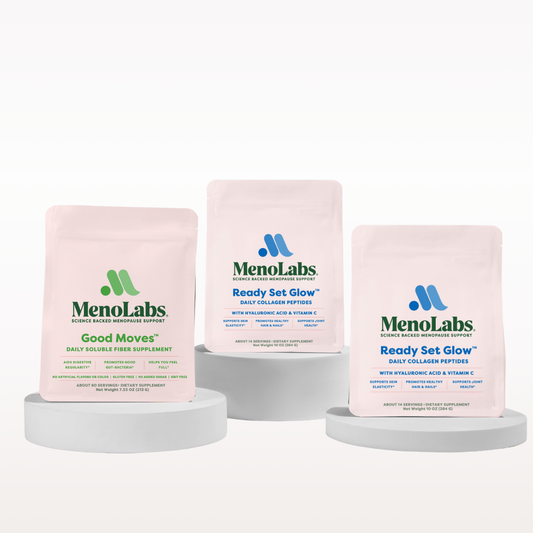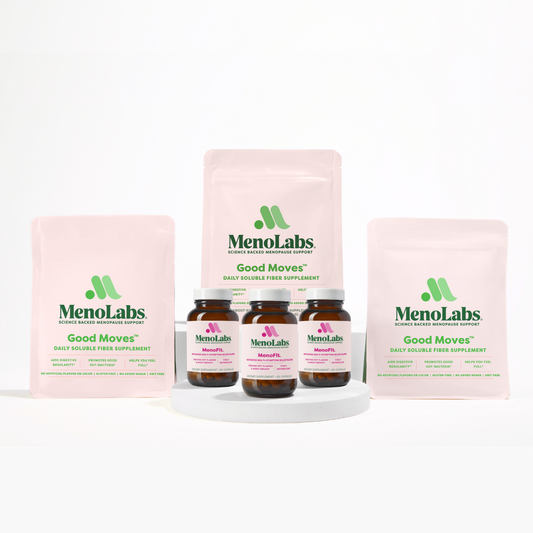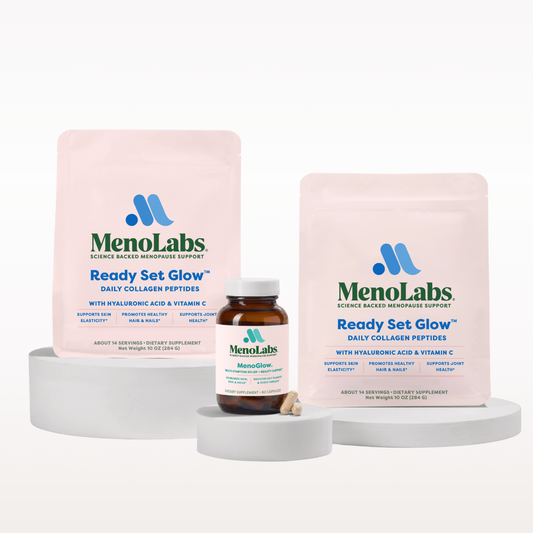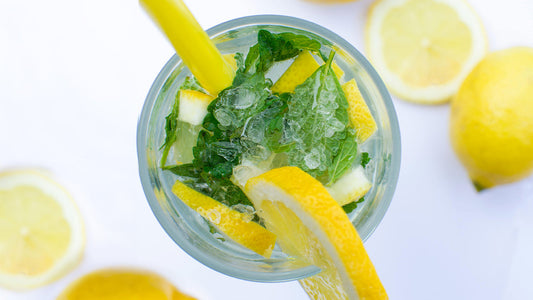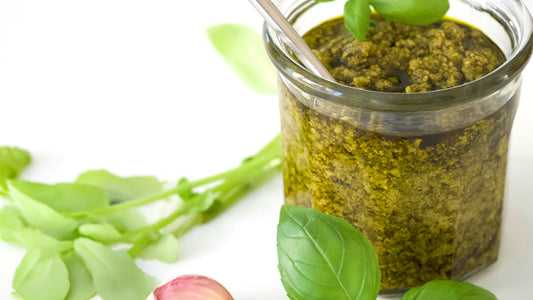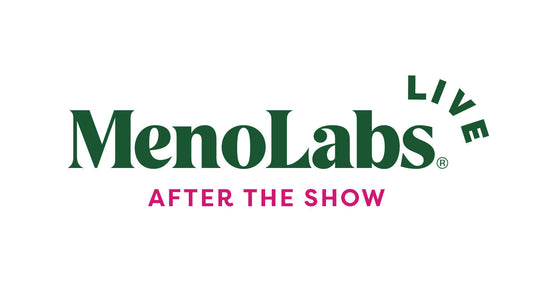The changes and symptoms we experience during perimenopause and menopause can feel overwhelming. But this is also a time in our lives when we can take stock of our needs and examine new ways to support them. And a great way to do that is by updating and upgrading your diet. After all, it was Hippocrates, the father of modern medicine, who said, “Let food be thy medicine and medicine be thy food.”
While food isn’t a substitute for doctor-prescribed treatments for serious, life-disrupting symptoms, a healthy diet is the cornerstone of preventative care. People with healthy eating patterns live longer and are at lower risk for health problems including heart disease and type 2 diabetes. And making tweaks to what you eat can help with some of the uncomfortable or difficult physical changes that perimenopause and menopause can bring.
Recipes for Bone Health
When it comes to bone health, it’s key to eat enough protein, calcium, and vitamin D. Ideally, you need to get 1,200 mg of calcium and at least 800 IU of vitamin D daily, but most women do not get those amounts from their diets alone, so adding supplements or making sure to consume extra foods with these nutrients is a great idea.
Though most of us hear the word “calcium” and immediately think “milk”, there’s actually a wide variety of foods that can get this essential mineral into your diet — including non-dairy foods like tofu, broccoli, canned sardines, salmon, seeds, nuts, legumes, and leafy greens.
For a lot of us, it’s easy to get sufficient vitamin D during the summer because of the extensive amounts of time we spend outside, soaking up the sun. But in the winter months, many people get less sunlight and, in turn, less vitamin D. Vitamin D deficiency is particularly common in menopausal women as hormonal drops correlate with a reduced ability to effectively absorb the nutrient. To counterbalance that, you might want to add a vitamin D supplement to your diet in the winter, as well as snack on vitamin D-rich foods like fatty fish, egg yolks, cheese, and vitamin D-fortified foods into your diet.
Check out these recipes for bone health:
- Superfood Chopped Salad with Salmon & Creamy Garlic Dressing
- Vegan Loaded Sweet Potato
- Grapefruit Baked Oatmeal With Walnut Streusel
Recipes for Thyroid Support
The thyroid gland is a small, butterfly-shaped gland that lies in the front of the throat and produces its own specific hormones that affect heart rate, mood, energy levels, metabolism, and bone health. It is fairly common for women going through menopause to also have an underactive thyroid, with an estimated 12–20% of women over the age of 60 years at risk for hypothyroidism. Symptoms of an underactive thyroid such as weight gain, brain fog, and changes to skin and hair often overlap with menopause symptoms and therefore can be hard to distinguish. Supporting a healthy thyroid requires the consumption of iodine, an essential trace mineral that must be obtained from food. Sources of iodine include seaweed, fish, dairy, eggs, shellfish, and chicken.
Check out these recipes rich in iodine:
- Homemade Sushi
- Edamame Seaweed Salad
- Southwestern-Style Shrimp Taco Salad
Recipes to Help with Symptoms
Phytoestrogens are plant compounds that can imitate the effects of estrogen in your body. As estrogen levels decline in menopause, eating foods rich in phytoestrogens may help reduce symptoms associated with said decline.
More anecdotal evidence of the benefits of phytoestrogens include a 2010 survey that found that Japanese women who eat diets rich in soy products do not report as many symptoms of menopause as other women around the world with different diets. Soy contains a high concentration of isoflavones, a type of phytoestrogen that is similar in function to human estrogen. Other foods rich in phytoestrogens include flaxseed, sesame seeds, celery, green beans, and pumpkin seeds.
Check out these recipes with plant estrogens:
Fiber-Rich Recipes
Most of us do not get enough fiber in our diet, no matter our age and that is a problem — but it’s an especially big problem for menopausal women. As drops in hormones wreak havoc on our gut health, it’s important to support the microbiome with its favorite food which is, you guessed it, fiber. Furthermore, fiber can help prevent multiple chronic conditions, regulate blood glucose levels in the body, slow down the absorption of sugars during digestion, and benefit heart health. Foods and recipes rich in fiber include whole grains, fruits, vegetables, nuts, seeds, and legumes.
Check out these fiber-rich recipes:
- Greek Orzo Stuffed Peppers
- Kale-and-Chickpea Grain Bowl with Avocado Dressing
- Southwestern Chopped Salad in Mason Jar
Recipes for a Healthy Gut
Improving your gut microflora helps also improve your metabolism and relieve many symptoms resulting from low estrogen. This is where probiotic foods like kimchi, sauerkraut, pickles, live yogurt, kefir, and kombucha can help.
Check out these probiotic recipes:
Changing your diet cannot eliminate symptoms on its own, but it’s still an easy and sustainable way to take charge of your menopause experience and improve your health years beyond the transition. Plus, it’s fun! Finding new recipes and trying different foods contributes to your whole body health and can even improve your mood. You may not love everything, but that just gives you an excuse to try something else until you find what works for you.
Updated on July 17, 2025
Related Products
Blend Besties Bundle
Fresh Start Bundle
4.7 / 5.0
(553) 553 total reviews







